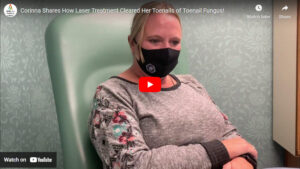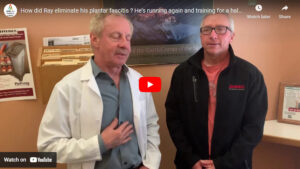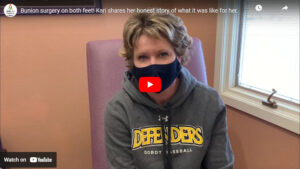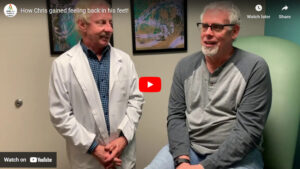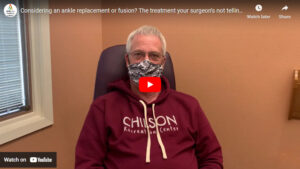
Eight Elderly Foot Care Tips
Your feet are complicated. They are comprised of one-fourth of all the bones in your body. The demand that we put on them throughout a lifetime is enormous. Some would call the foot an engineering feat. By the time you are a senior, many hours have been spent on your feet. They have been built to absorb shock for your body weight, they are asked to propel your body weight forward. Finally they also do a great job of allowing you to balance the weight and prevent you from falling. In general routines for healthcare seem to ignore the feet until one is presented with foot pain. Especially in older people, eventually our feet may begin to wear down. If you’re an older adult, you may be blessed with a good foot type. This may help you avoid a lot of the foot problems others may have. What foot type you’ve had throughout your life may be a prognosticator as to how well your feet hold up. A severe flatfoot for instance may cause more issues in an adult than a foot with a normal arch. Below I’ve listed 8 tips for proper elderly foot care that you may not be aware of.
- Fungal nail. Often toenails will become yellow and thicken as we age. An additional risk of an ingrown nail may then occur. To avoid this, make sure not to wear shoes all the time. It’s good to let your feet air out while at home as moisture makes for a good breeding ground for fungus. At early stages over the counter anti-fungal topicals may be used. We have also had great success with using lasers to destroy the fungus for the past 15 years. Corinna opted for laser toenail treatment to cure her toenail fungus. See her testimonial video below.
- Heel pain is commonly referred to as plantar fasciitis. This occurs on the bottom of the heel and is caused by the fascia pulling from the heel where it attaches. By using more supportive shoes that support the foot and do not allow the fascia to pull as hard you may get relief. Also, calf stretching may be useful, especially in the early stages. Wo often uses custom-made arch supports called orthotics to eliminate the pain. We have also had great success with the use of human cellular tissue products, placenta cells, or umbilical cord, which when injected into the area, assist in repairing the tissues. Ray is running again after dealing with heel pain. Watch as he explains his recovery in our testimonial video below.
- Ingrown nails. This occurs frequently and may be avoided by taking care not to dig down into the corner of your toenails. Often, we recommend removing the offending edge or edges of the nail by removing them and then applying a chemical that kills the nail cells, so the nail border does not regrow. This is done in the office, and you can usually resume normal activities the next day.
- Bunions—A bunion deformity is a result of the first toe being angled towards the second toe. This then creates a prominence by the inside of the great toe that will become painful and rub shoes. When wearing shoes, it’s important to avoid high heels. Sometimes orthotics may also be helpful. Finally, surgery may also be considered and there approaches we use in the senior population require less risk and layup that can be considered. This senior foot care solution is important, because as we age dealing with improper balance can be a compounding problem for daily activities. Our testimonial video by Kari shows how we resolved her bunion issues on both feet below and she explains how the surgery went, including her recovery period.
- Neuropathy– Many will suffer from burning tingling and numbness in the feet as they get older, especially on the bottom of their feet. This may be related to diabetes but may occur without diabetes. Make sure to exercise and avoid sugars and carbohydrates and help. We offer surgical procedures that can reverse your symptoms if they are severe and non-surgical options. See Chris explain his foot numbness in our testimonial video below.
- Check your feet regularly– This is especially true if you are a diabetic. Diabetics may have poor circulation and neuropathy in diabetics often leads to a reduction of sensation. With a lack of feeling a callous or ingrown nail which would normally be painful may go undetected putting you at more risk of infection. So, either you or someone else should do a quick foot check regularly. Wearing closed shoes and cotton shoes is also recommended to protect your feet.
- Osteoarthritis. The wear and tear of a lifetime on your feet can lead to damaged joints and osteoarthritis. For many, the idea of anti-inflammatories comes to mind as a treatment. It’s this doctor’s opinion as this is a poor choice and these drugs are Band-Aids and truly do not address the issue. There is evidence that long-term usage accelerates the arthritic condition and can complicate an elderly foot care routine. For many, the option of custom-made inserts may help with painful joints by reducing the stress on the joints. For over a decade, we have also found the use of restorative medicine by using the placenta or umbilical cord has helped many avoid surgery. Finally, if surgery to replace an ankle joint with an implant or have a joint fusion to reduce pain has been advised we offer joint denervation surgery which is much less risky and requires far less layup time. It’s something many have chosen to consider. See our testimonial video on Steve after his surgery below.
- Be healthy- sleep well, eat well, and exercise. These three things that are good for you, in general, are also good for your feet. Sleeping well is the most important thing you can do for your health and to keep your weight down. When it comes to eating, avoid processed foods of all types and minimize sugar and carbohydrates as this may cause inflammation in your body. Finally, exercise with be good for your mind and improve your circulation in the feet. Another tip would be to consider intermittent fasting as part of your overall health regime. See our video by Dr. Anderson on intermittent fasting below and the benefits.
In conclusion, it’s not normal for your feet to hurt. You must consider these elderly foot care tips for better foot health in seniors. If you’re having problems don’t assume it’s your shoes as it can be something more significant and early intervention often is the wiser choice. Contact us or visit our Fort Collins clinic to see a podiatrist near you.
